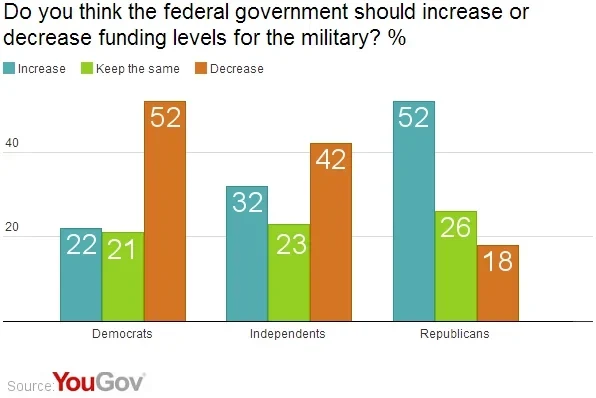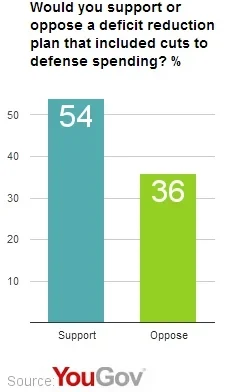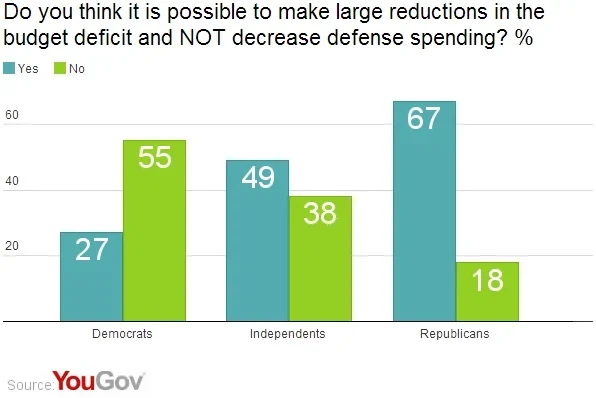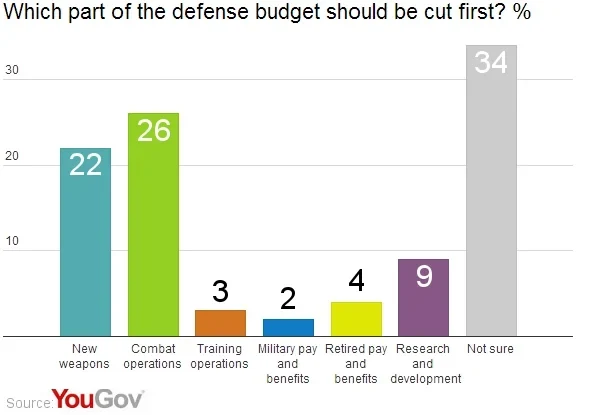Most Americans would support deficit reduction plans that lower defense spending, but support for cutting troop numbers is much lower, with people preferring to take an axe to combat operations and weapon purchases.
Last week saw Republicans and Democrats in Congress come together to hammer out the first budget since 2009. One of the main achievements of the budget for both Republicans and Democrats was to prevent further cuts to defense spending under 'sequestration', which implemenents across-the-board spending cuts each year that a budget is not passed. Nevertheless, certain cuts to the military budget have been approved - including changes that would see lower retirement benefits for servicemembers who complete a full 20-year term.
The latest research from YouGov shows that Americans are divided along partisan lines over the future of the budget. 40% of Americans want to cut defense spending, while 33% want to increase defense spending. This is largely a result of the fact that most Democrats (52%) and many Independents (42%) want cuts, while most Republicans (52%) think that funding for the military should actually increase.


The divisions are replicated when people are asked whether they would support a broader deficit reduction plan that included cuts to defense spending. Support for cutting the defense budget increases among all groups, including among Republicans, when asked this question. Nevertheless, 63% of Republicans say that they would oppose a deficit reduction plan including cuts to defense spending, while 54% of the broader public - and 67% of Democrats say that they would support such a plan.
This may, in large part, be a result of differing attitudes to how significant a role defense spending plays in the current deficit, which currently stands at 4.3% of GDP. Most Democrats (55%) say that it isn't possible to make large reductions in the deficit without cutting defense spending, while most Republicans (67%) say that it is possible to cut the deficit without major defense cuts. Interestingly, Independents tend to support defense cuts but also are inclined to say that these cuts are not essential for deficit reduction.

When asked which part of the defense budget should be cut first, if cuts need to be made, the public tended to choose either cuts to new weapon purchases (22%) or funding for combat operations (26%). 34% of Americans say that they aren't sure what should be cut first. Most Americans (52%) also oppose cutting the total number of troops as part of defense cuts, though 31% do support decreasing the number of troops.

Asked what should be cut last the most popular option - chosen by 38% of the public - was to protect the pay and benefits of current service members.
Full poll results can be found here.
Image: Getty Images









